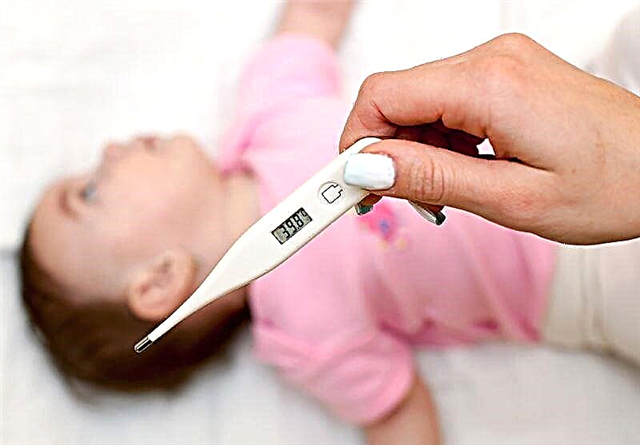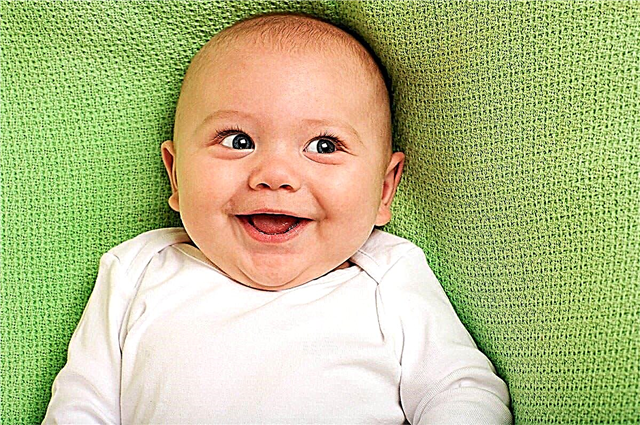Many parents of infants with the appearance of the first milk teeth are faced with such a problem when the child begins to grind his teeth in a dream. A common misconception among the people immediately suggests that the worms in the large intestine are to blame for this phenomenon. This statement is erroneous and has long been disproved by medical research.
“There is a myth among the people:“ If a child grinds his teeth, it means toils with worms ”. There is no need to be afraid, this myth has no foundation. Children gritting teeth have worms no more often than others.
But it is still worth finding out the cause of the grinding (bruxism), because it is an immediate threat to the teeth themselves. "

Teeth grinding in a dream in medicine is called bruxism... Dentists, neurologists and sleep doctors (sleep specialists) study this disease.
Causes of bruxism
The causes of bruxism are not known for certain and cause scientific controversy among researchers of this phenomenon. Most experts believe that bruxism can be caused by:
- Hereditary factors. If both parents (or one of them) had a habit of grinding their teeth in childhood, then, most likely, it will be inherited by the offspring.
- Teething. The unpleasant sensations associated with the appearance of new teeth make the baby pull into the mouth, whatever it gets, to scratch the gums. Sometimes the creak of the first teeth is added to all this (teeth are being cut).
- Studying your own body. The kid notices that "something" has appeared in his mouth that was not there before. The toddler can knock, squeak his teeth simply because he likes it.
- Malocclusion.
- Disorders of nasal breathing with polyps, adenoids and sinusitis. In this case, the child grinds his teeth due to dry mouth - this increases the production of saliva.
- Lack of calcium and amino acids in the body.
- Stress, negative emotional experiences, various disorders of the nervous system.
- Sleep disturbances. In such a case, bruxism can be attributed to a group with such phenomena as snoring, enuresis, nightmares, somnambulism, etc.
- Abnormal jaw development and malocclusion. The child seems to be trying to grind his teeth together.
- Weaning. A not extinguished sucking reflex and negative emotional experiences sometimes cause temporary bruxism.
- The first manifestations of epileptic seizures (in rare cases).
Most often, bruxism, which passes by school age, affects children 2-3 years old. But it is also observed in children of the first year of life., adolescents and adults.
Bruxism is not a safe phenomenon, but, fortunately, it is quite treatable.
Constant friction leads to thinning of the tooth enamel, the appearance of microcracks, and a violation in the formation of a normal bite can occur. Bruxism can cause muscle tension in the neck, back, headache and toothache.
If you notice that the child has begun to grind his teeth strongly (this can happen both during the day and at night), you need to contact a neurologist and dentist. Experts will help you figure out why the child is grinding his teeth, and will select an individual treatment.
Bruxism treatment
If your child grinds his teeth at night, a neurologist can recognize a neurological problem. Such diseases are corrected with medication and only under the supervision of a specialist.
The kid can be assigned valerian, tenoten, glycine, Magne B6.
As a complex therapy, soothing baths, aromatherapy, sedative herbal preparations are prescribed.
Sometimes dentists for the treatment of bruxism prescribe the wearing of special protective mouth guards (pads) that will protect the baby's teeth from abrasion of the enamel. In case of painful sensations, with bruxism, rinsing with chamomile broth and applying warm compresses to the lower face are recommended.
If a child grinds his teeth during the day, and sleeps peacefully at night, you should also see a specialist. As mentioned above, teeth grinding can be caused in babies by teething, malocclusion, or simply a desire to "experiment".
When teething, use special teethers that the baby can chew on. Use anesthetic gels to relieve pain. Distract your toddler from grinding with a new toy, fun game. Physical exercises, games and walks in the fresh air have a beneficial effect on the nervous system of children.
General recommendations
 When treating bruxism (both day and night), doctors insist on following these recommendations:
When treating bruxism (both day and night), doctors insist on following these recommendations:
- Observe the regime of sleep, rest, feeding.
- Provide your baby with a rational and nutritious diet. Little squeaks should be allowed to gnaw on hard apples, carrots, cabbage. Active work of the chewing muscles during the day will reduce their nighttime activity.
- Eliminate sugar, food with dyes, flavors, fast food from the diet.
- Feed your baby dinner 2 hours before bedtime. This rule does not apply to breastfeeding before bed. For drinks after dinner, it is recommended to use only clean water.
- Before going to bed, try to tune the child to a calm mood: reading books, not noisy games, are suitable for this.
- Try to be more attentive and patient parents with your baby. Perhaps your little one lacks affection. Children, disliked in early childhood, grow up with a wide range of psychological problems.
- Create a supportive family environment. Scandals, stresses entail negative, sometimes irreversible, consequences for the fragile child's psyche.
Tips from the forums
Snowflake: There may be problems with the intestines, gastrointestinal tract. Or maybe he gets a lot of impressions before going to bed ...
Svetlana Borisova: This nervous overstrain, the same thing happened to me, it is necessary to give sedatives to the weak and at night choose calmer games, exclude TV and outdoor games.
Layla -Valeila: If a child grinds his teeth in a dream, this does NOT mean that worms, it means overexcitation and not a calm nervous system. Doctors in such cases suggest drinking something sedative or putting an open bottle of valerian in the room. (Not with pills, but liquid)
Ksenia Tyaglo: I, as a psychologist, tend to believe that the cause of bruxism is stress, and there are a lot of them in young children. Sometimes we don’t think about it. Mom and Dad raised their voices to each other and did not notice, but the child remembers and worries, but at the expense helminths, think for yourself, people would creak in cities ...)))



